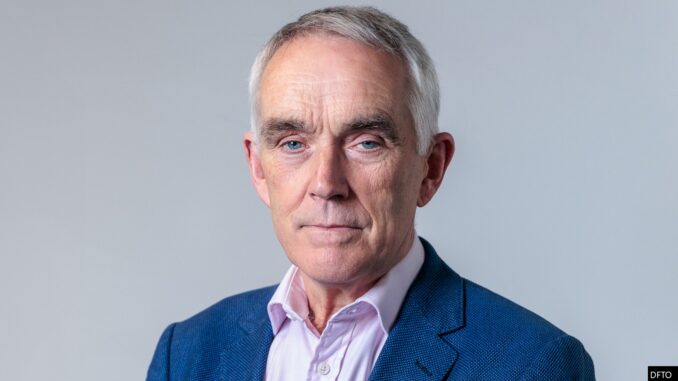
As the government’s policy of taking train operating companies (TOCs) back into public ownership begins to bite, the head of the Department for Transport’s Operator, Robin Gisby, has announced he will step down on 23 December 2025.
Robin was appointed as chief executive officer of DfT OLR Holdings Limited in 2018. As head of the DfT’s operator of last resort, Robin and his team ran four train operators – LNER (franchise handed back by Virgin Trains East Coast), Northern and Transpennine Express (contracts expired and not renewed) and Southeastern (franchise cancelled due to financial irregularities).
Since the Labour Government came to power, it has implemented a policy of not renewing operator contracts as they expire. Together with the aforementioned four operators, South Western Railway and C2C have joined the publicly owned group and the managing body has been renamed DFTO (DfT Operator Limited).
So, Robin has overseen the successful transfer of the services of six train operating companies into public ownership during his time as Chief Executive and has been a key member of Shadow Great British Railways, working to bring track and train together ahead of GBR being set up.
A successor is now being sought, with an announcement anticipated “in the Autumn”.
At the same time, 200-300 DfT employees will transfer to DFTO, bringing their work, skills and expertise closer to the frontline of a publicly owned railway. A DfT spokesperson explained that the public ownership programme is expected to see another operator transferred into public hands roughly every three months, with every operator to be publicly owned by the end of 2027. Thus, ensuring the Department for Transport Operator has the right resource and talent to oversee these transitions and the operations of these services is vital to making sure passengers see no negative impact on their services.
“There will be no redundancies as a result of these moves into DFTO,” the spokesperson continued. “The 200-300 DfT staff involved will transfer to DFTO, bringing their work, skills and expertise closer to the frontline of a publicly owned railway.
“This will bring us a step closer to ending the fragmented railway we see today, towards a railway run as a business by industry professionals who have the knowledge, expertise, and ability to build a railway fit for the 21st century”.


Be the first to comment